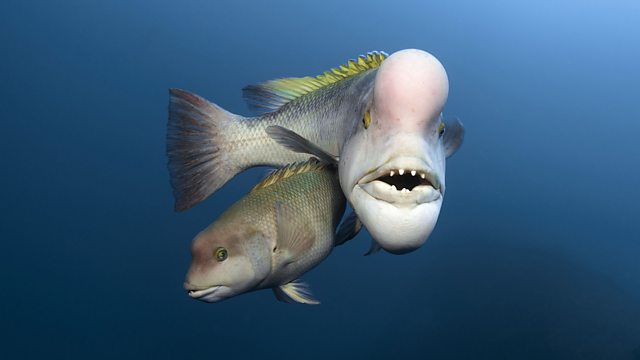Why Do Some Animals Change Sex?
Switching sex is more common than you might think. Many animals start out as one sex and change into the other..
In humans if you have two X chromosomes you are female and if you have an X and a Y then you are male. It is textbook science. But CrowdScience listener Du in Singapore has done some extra homework and found a piece of intriguing fish research which suggests a different outcome, at least for one species – tilapia, a popular fish on restaurant menus worldwide and as it happens, the first fish to visit space. Whilst humans couldn’t exist without an X-chromosome, tilapia apparently, can. In fact, they are happy with just two Y chromosomes. The existence of this odd breed comes down to the tilapia fish’s ability to change from male to female.
Nature has come up with an array of bizarre solutions when it comes to sex determination and what sets you on one genetic path or another. And like with the tilapia fish, the decision isn't always for life. Some species of fish, lizards and even birds sidestep the chromosome system and morph between the sexes to survive a changing environment. How can they have both genetic sex pathways latent within them? And why can’t humans do the same trick?
Presenter: Marnie Chesterton
Producer: Louisa Field
(Photo: A male Asian sheepshead wrasse courting a female featured in ���˿���’s Blue Planet II. Credit: Getty Images)
Last on
More episodes
Previous
Clip
-
![]()
Are men doomed?
Duration: 02:24
Broadcasts
- Fri 31 Aug 2018 19:32GMT���˿��� World Service except News Internet
- Sat 1 Sep 2018 23:32GMT���˿��� World Service except Americas and the Caribbean & News Internet
- Mon 3 Sep 2018 04:32GMT���˿��� World Service except Australasia, East and Southern Africa, News Internet & West and Central Africa
- Mon 3 Sep 2018 06:32GMT���˿��� World Service East and Southern Africa & Australasia only
- Mon 3 Sep 2018 10:32GMT���˿��� World Service West and Central Africa
- Mon 3 Sep 2018 14:32GMT���˿��� World Service Australasia
Podcast
-
![]()
CrowdScience
Answering your questions about life, Earth and the universe



